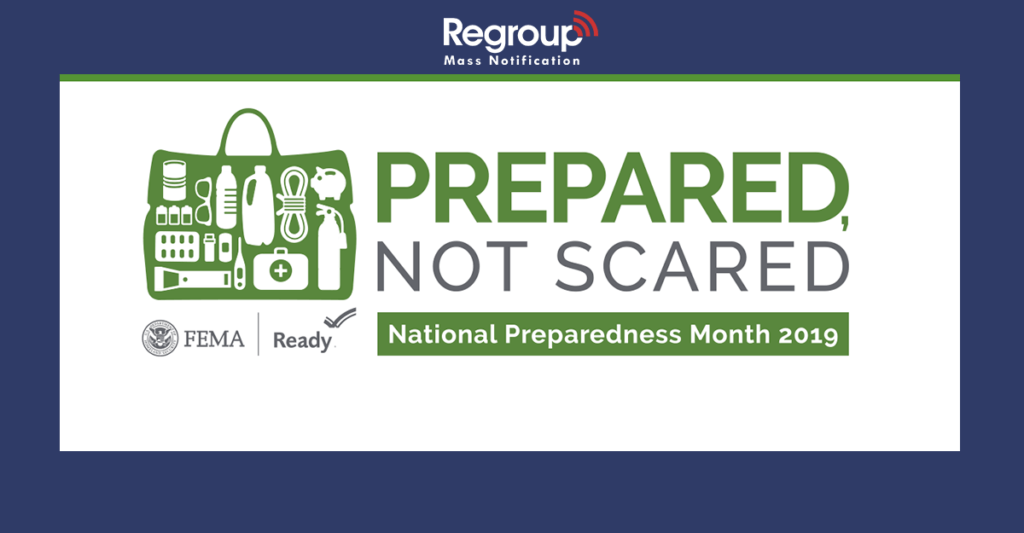
Get Involved: Empowering Communities to Prepare for Disasters
Whether it’s major flooding, hurricanes, wildfires or earthquakes, nearly every part of the country will potentially face a natural disaster at an unexpected time.
The Federal Emergency Management Agency’s National Preparedness Month was designed for individuals, businesses and communities to “be prepared, not scared” in case of disaster. With the right tools and advance planning, people can weather storms and other emergencies without fear.
One way to approach such disasters is for individuals to educate themselves on disaster preparedness, and share that information with their friends, neighbors and coworkers.
Regroup Mass Notification provides the ability for businesses, organizations and municipalities to provide information and evacuation notices in case of emergencies. These mass notification users are also empowered to create templates, so that when disaster strikes, there will be no panic or guesswork in sending out critical information.
Essential communication tools include:
- Automated weather warnings and watches, fully integrated with NOAA and NWS
- Evacuation notices
- All-clear notices
- Evacuation routes, or shelter information
- Day-to-day communications, so businesses can get up and running as soon as is practical
One of our clients was able to use the day-to-day communications to open its manufacturing business following an evacuation after hurricane-caused massive flooding. While many of its workers were still evacuated and unable to make it to work, the company was able to rally those available to work to do so. The business continuity proved to be invaluable, especially after such a major disruption to both business and home life.
If you or your business would like more information on how to get involved, FEMA offers several resources:
- National Voluntary Organizations Active in Disaster
- National Safety Council
- Community Emergency Response Teams (CERT)
- State and Local Information
If you, a loved one, or a coworker has a disability, some extra early preparation can make emergency response go more smoothly. Plan ahead for accessible transportation for evacuation routes, emergency shelters or getting to a medical facility. Work with local services, public transportation or paratransit to identify accessible transportation options. www.ready.gov/disability
Categories
- Healthcare
- Preparedness Guides
- Corporate
- Insurance
- business continuity
- Business Case Studies
- Healthcare Case Studies
- COVID-19 Featured Articles
- Education Case Studies
- Business
- Education
- Regroup Product Guides
- Nonprofit
- Hospitality
- Government & Public Services
- Our Clients
- Awards
- Blog
- COVID-19
- Safety & Preparedness
- Downloads
- Case Studies
- News
- Announcements